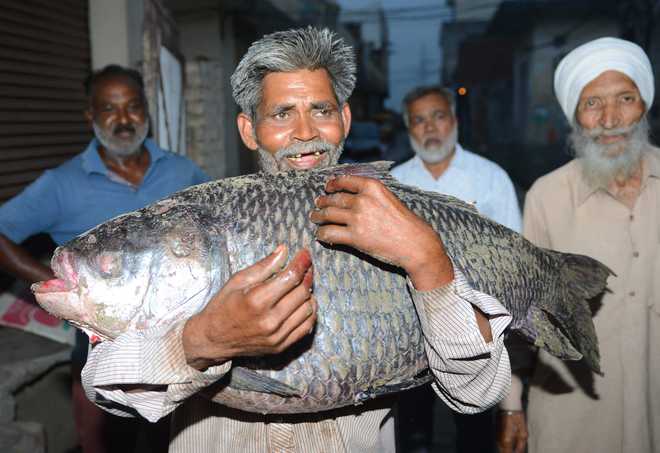
A couple of junior officials have been suspended, and the state's residents are expected to accept the explanation that "action under the rules" has been taken against those responsible — for such damage that wildlife experts believe may never be repaired.
Kuljit Bains
From politicians to tribunals, even a former gangster, everyone has poured outrage on Chadha Sugar Industries for the disaster its mill in Kiri Afghana, Gurdaspur, perpetrated on the state's waters and aquatic wildlife. The distraction may just be comfort for many others responsible for what has been labelled an "accident" that can be made good with a fine. A couple of junior officials have been suspended, and the state's residents are expected to accept the explanation that "action under the rules" has been taken against those responsible - for such damage that wildlife experts believe may never be repaired.
When you know a potentially dangerous situation is being created, and you let it grow - even as it is possible to stop it - and therefrom results a disaster, it cannot be called a mere "accident". It is a deliberate criminal act, the scale of which has to be assessed in terms of the damage caused. This is what happened at Kiri Afghana on the night of May 15. And those responsible for it were not just the hands available on the spot that night.
That all storage tanks were not in order was known to the mill authorities, who would have kept the owners in the picture. The quantities of molasses were more than could be handled; collected over a period. There were excise, pollution, industry, and even district administration officials who were supposed to keep a check on various aspects. If they were not absent from duty, it should be assumed all knew what the situation was. Yet, none acted. All of them, thus, deserve to be named conspirators in the criminal act.
That is for what happened at Kiri Afghana. But what happened over the subsequent week was no less shocking, if not criminal. After the "accident", the very next day a deputy commissioner declared the water safe for fish. Two days later, a load of dead fish turned up in a canal in Faridkot. Drinking water supplies of many towns downstream were contaminated. It seemed all authorities, boards, government officials, and the political leadership were in a hurry to declare the disaster over. Clean chits from various labs came quick and fast. What none could explain was what was visible to the plain eye: dark waters, rotting fish, sick people.
The incident has now brought attention once again to the beaten topic of Punjab's polluted waters. The Tribune on Sunday reported five distilleries creating environmental havoc in the villages around them. But more than the mess, what was shocking was the straight face with which official after official said there was nothing wrong, and all norms were being followed. Either they are lying, or the norms are designed to cause pollution. And this falsifying of records, turning of a blind eye by pollution control officials, has been the norm practically forever. The largest pollution-causing cities in the state have no record of any action taken against industries in the past five years, even as the life of the region, the Sutlej, turns into a "river of sorrow".
It is not hard to imagine how all this is possible. A unique feature of the distilleries is their ownership, which in most cases comprises politicians or politically connected people. That is because everything from licences to permits, and then the purchase of raw materials to sale of produce, is under government control, and no common businessman can manage that. Huge money is involved, and that is what makes the violation of pollution norms seem like a minor offence. This money has financed elections too. And that makes the very top in the government also go soft. The scale of the criminal conspiracy thus has to be seen with a wide-focus lens.
As for the Kiri Afghana matter, the identification and description of the crime, and the subsequent punishment awarded under the existing laws and provisions, reek of nepotism and crony capitalism. A bunch of people need to spend at least a few nights behind bars. If the law does not provide for that, then it needs to be revisited, immediately.



























